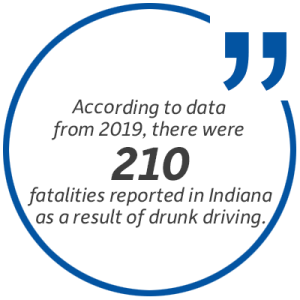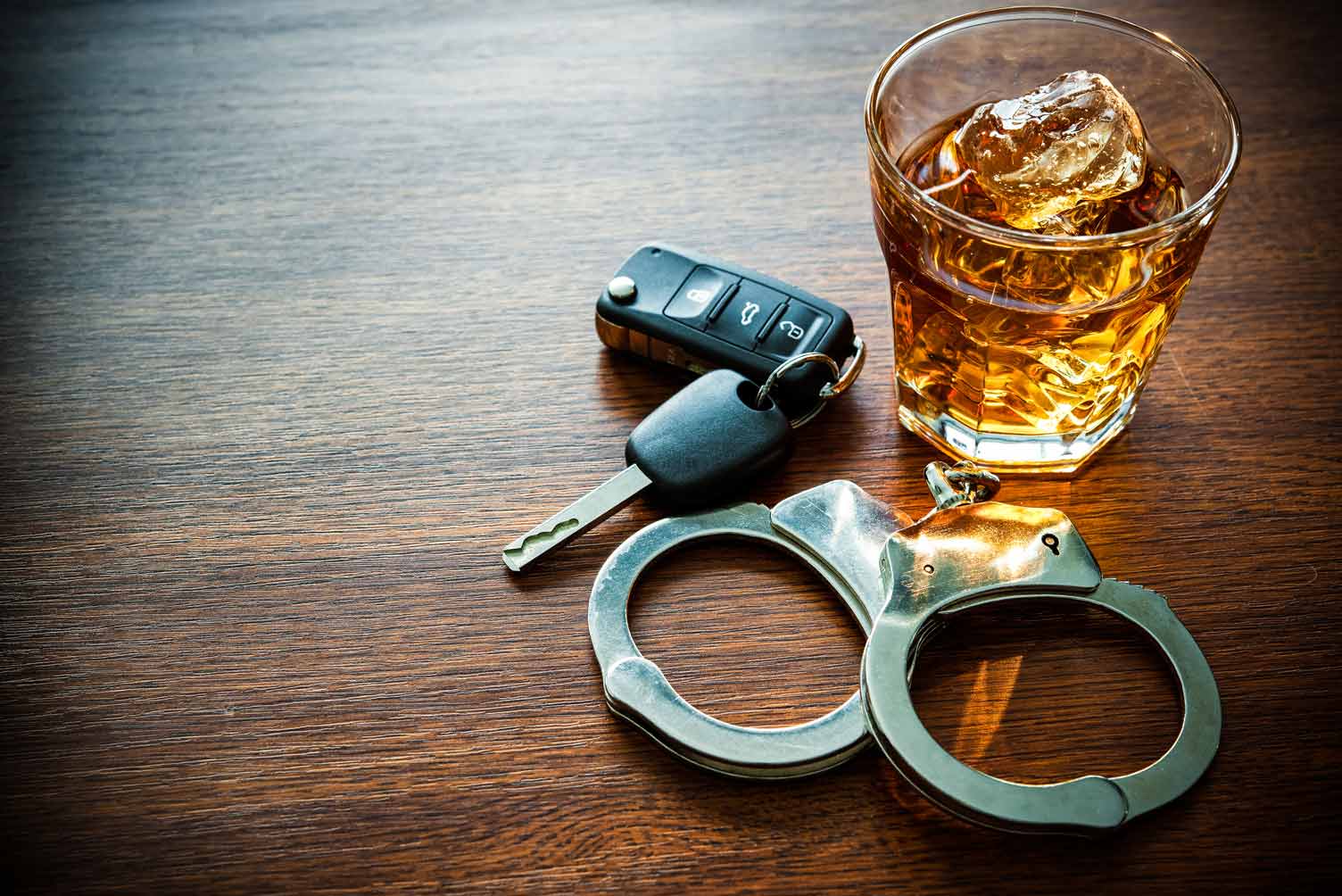
Thousands of people are injured and killed in drunk driving accidents every year. According to data from 2019, there were 210 fatalities reported in Indiana as a result of drunk driving. The national total for that year was 10,142. The question is, are drunk drivers always at fault?
Because so many people die each year in drunk driving accidents, many programs focus on trying to prevent people from getting behind the wheel while drunk. However, this places the emphasis on the drivers themselves, and while drunk drivers are more often than not the ones responsible, other parties can be liable.
A Crossen Law Firm, our Indianapolis drunk driving lawyers have over 20 years of experience with drunk driving cases. If you’ve been injured in a drunk driving accident, we can help you file your claim and ensure the appropriate party is held responsible.
Understanding Liability: Are Drunk Drivers Always at Fault?
To put it plainly — no, drunk drivers are not always at fault. Though driving drunk is a crime, that doesn’t mean the drunk driver is necessarily the one at fault when an accident happens. That driver will likely still be charged for driving under the influence, which in Indiana is referred to as an OWI (operating while intoxicated), but that doesn’t mean they will also be held liable for the damages caused by the accident.
Other parties could potentially be held liable for the accident, and thus responsible for the damages. These can include:
- Dram shops: Indiana has a law that enables victims of drunk driving accidents to hold the establishment that provided the alcohol to the drunk driver responsible. These include convenience stores, liquor stores, bars, restaurants, and event venues. If the establishment provided alcohol after it was clear that the person was drunk and shouldn’t have anymore, then they could be held liable if that person then causes an accident.
- Another driver: If there was another driver involved, they could be the one who caused the accident, not necessarily the drunk driver. For example, another driver could have been speeding, which could have resulted in them crashing into you and the other drunk driver. In this case, other than being drunk, the drunk driver might not have done anything wrong and the driver who was speeding would be the one at fault for the accident.
- Social hosts: Similar to how dram shop liability works, individuals who host social events could also be held liable if they supplied alcohol to someone who then got behind the wheel and caused an accident. For example, if someone was hosting a birthday party or if a company was hosting an office party, liability could potentially be traced back to them for supplying the alcohol to the drunk driver.
- You: Of course, it’s worth noting that if you are involved in an accident with a drunk driver, you could also be held liable. Just because the other driver was drunk does not mean that their actions caused the accident. If you were distracted and on your phone or if you ran a stop sign, for example, you could be the one responsible for having caused the crash.
It is also possible for liability to be shared between more than one party. Both you and the drunk driver could be viewed as having contributed to the accident, for example. Or the drunk driver and the establishment that provided the alcohol could share in liability.
Determining Fault in Drinking and Driving Accidents
Are drunk drivers always at fault? To determine who exactly was at fault for a drunk driving accident in Indiana, you must establish negligence. To do this, you must first establish something known as “duty of care.”
All drivers, for example, owe a duty of care to others, which means they must operate their vehicles with care so as not to cause harm. If they breach this duty and cause an accident that results in an injury, they can be held liable for their negligence.
To hold a party responsible for a drunk driving accident, you will need to provide evidence and build a case showing how that party owed you a duty of care and how they breached that duty, thus causing the accident and your injuries.
However, it’s important to note that some states have “negligence per se” laws that can change how establishing and breaching duty of care works. For example, it could be possible to argue that simply by violating the state’s OWI laws, the drunk driver breached their duty of care and should therefore be responsible for the accident.
In Indiana, negligence per se isn’t always an option. It can vary from case to case. For this reason, you may need to work with a lawyer to determine the best course of action for your situation. Depending on what happened, negligence per se may or may not be an option for holding the drunk driver liable.
Damages You Can Recover After Being Hit By a Drunk Driver
When you file a claim for a drunk driving accident, there are various damages you can be awarded. For example, you could recover pain and suffering when hit by a drunk driver, or you could recover medical expenses or both. The damages available to you will depend on your situation.
Generally, the list of damages that a person can recover from a drunk driving accident include:
- Medical expenses
- Cost of therapy or rehabilitation
- Lost wages
- Physical pain and suffering
- Emotional distress
- Loss of enjoyment of life
- Permanent impairment
- Scarring and disfigurement
- Loss of consortium
To fully understand how liability will work in your case and what damages you can recover, talk to a personal injury lawyer. They will be able to offer you guidance and help you navigate your claim to ensure the best possible outcome.
Consult an Indianapolis Personal Injury Lawyer
If you were injured in a drunk driving accident, our team of experienced Indianapolis personal injury lawyers can help. At Crossen Law Firm, we have over 20 years of experience fighting for victims of drunk driving accidents and are dedicated to working tirelessly to get you the compensation you deserve and ensure the correct party is held liable.
Contact us today or give us a call for a free consultation at (317) 401-8626.

 317-401-8626
317-401-8626 
.jpg)